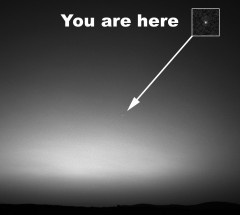Are there any major differences between American and British science fiction (SF)? If so, what are they and what is the reason for them? What the heck does this have to do with libertarianism?
In the December 2007 issue of Locus Magazine, reviewer Graham Sleight says a couple of interesting things about the differences between American and British SF:
One of the interesting tensions in [Greg] Bear’s work is between the American and British strains of SF. Broadly (and here I’m borrowing from Brian Stableford’s The Scientific Romance in Britain (1985)), British SF derives from the scientific romance tradition of Wells and Stapledon, in which protagonists observe (often in wonder) but do not change the world. In American SF, they do, and the future is something to be worked on, conquered, perhaps owned.
I definitely have a greater affinity for the American strain. The British strain seems to lend itself well to cynical or satirical dystopian stories; the American strain more likely to be hopeful and productive of a libertarian future. The work of Robert Heinlein, one of my favorite science fiction authors, is quintessentially American. Ayn Rand’s Anthem and Atlas Shrugged are a dystopian novella and novel, respectively, with distinctly American endings.
In a sense, [Alastair] Reynolds’s book [Revelation Space (2000)] should be seen here as emblematic of what other British writers have been doing recently: taking the props of American SF and putting a distinctive dark perspective on them. . . . The end of the book opens up the sort of cosmological perspectives one associates with Stapledon (or Baxter), but does so in a story where individual actions make a difference.
I’m not a huge fan of the cosmological-perspective stories in which individual actions make little or no difference. They can be dreadfully pessimistic and dark. And while a cosmological perspective, used in moderation, can offer us a wider perspective on the present and our own individual concerns, it is a mistake to think that this perspective is primary for telling/showing us what is really important and valuable. I think some SF authors make this mistake. Is it a distinctively British one? Not that I’m indicting all of British SF, mind you — just making an observation about general tendencies and parallels.
I think a proper ethics approaches value (and virtue) from an agent-relative, interested, first-person perspective (i.e. a praxeological one) rather than from a typically modern, agent-neutral, impersonal, third-person perspective. I have in mind particularly an ethics focused on the principles necessary for the self-perfection and flourishing of the individual as opposed to the typically modern, rule-oriented approach in which the individual moral agent gets lost amidst social duties to attend to the needs of others. The focus on the cosmological perspective in science fiction, with its passivity and tendency to dwarf the stature of man, strikes me as being related to the modern, impersonal approach to ethics.

It reminds me also of the purposeful attempts to belittle man, to diminish the importance of individual values and achievements, by pointing to a photograph of our galaxy, or conjuring a mental image of the universe, and exclaiming how small the earth is amidst all that vastness — “We’re just insignificant specks in the grand scheme of things after all.” — the implications often being anti-individualist and unlibertarian.1
What does breaking a few paltry eggs matter when one must make an omelette? As I discussed in my previous post, reviewing the movie Ninja Assassin, collectivist political philosophies rely upon this diminution and subordination of individual human beings.2 Libertarianism, on the other hand, is an inherently individualist political philosophy, recognizing the importance and value of the individual. Consistent respect for the rights to life, liberty, and property of others represents the recognition that they are ends-in-themselves, not means to our ends or those of Society, the State, or the Cosmos. Our lives and achievements have value. They have value to us, even to others. That is all that really matters — yes, even in the grand scheme of things. And the universe is here not just to be passively observed, but to be transformed into goods for the betterment of our lives.
~*~
Cross-posted at The Libertarian Standard. Note: This is a revised and expanded version of an older post at Is-Ought GAP.
Regarding the right perspective mentioned in the image caption, see This Picture of Earth from Mars is the Most Amazing Thing Ever. EVER. ↩
Somewhat paradoxically, the very same people who seem to take pleasure in pointing out our insignificance often turn right around and proclaim that we are destroying our planet and we must take drastic action now! My, how efficacious we insignificant little specks are. I say this not to belittle real environmental concerns that directly and adversely affect people and their property but to point out certain tendencies, contradictions, and hypocrisies. ↩















